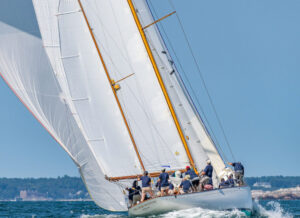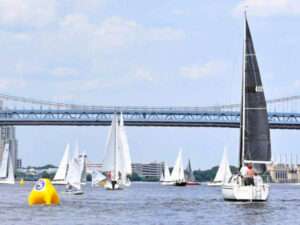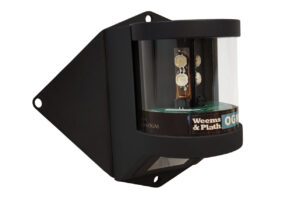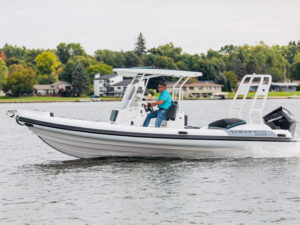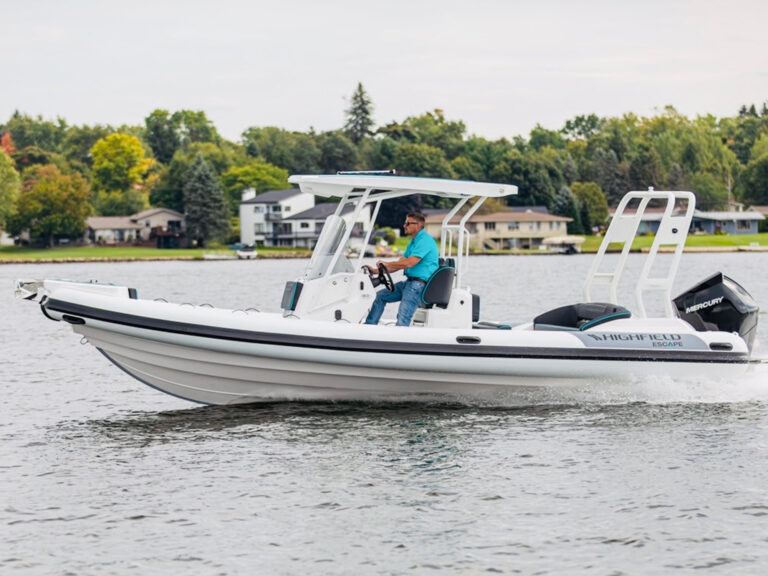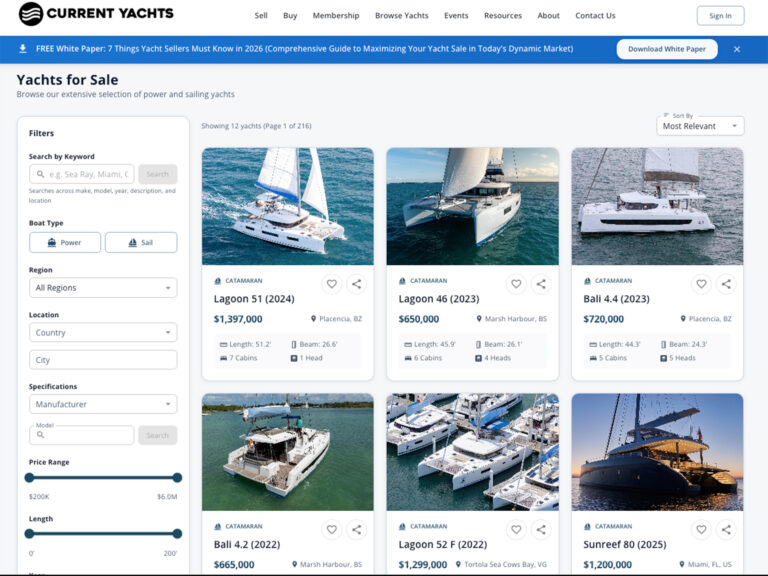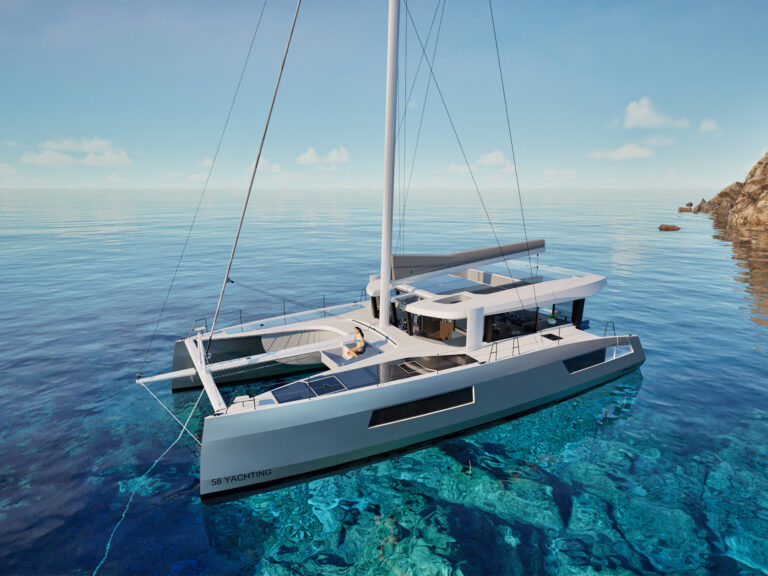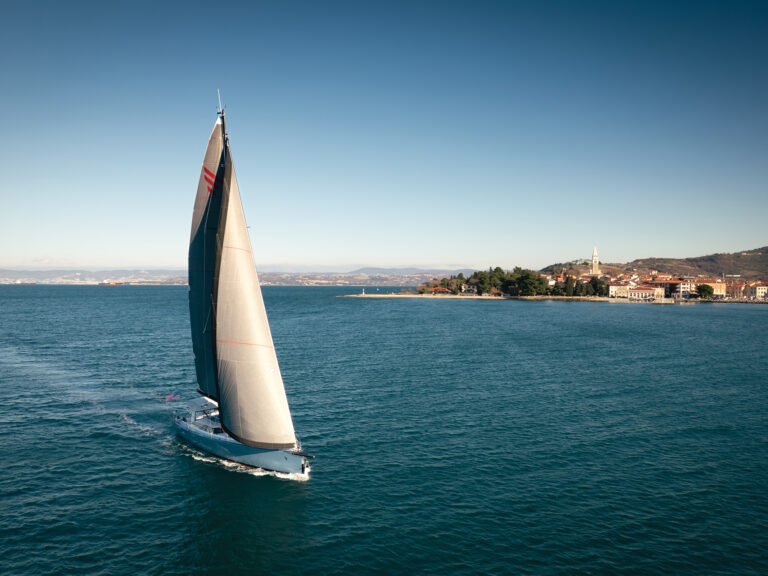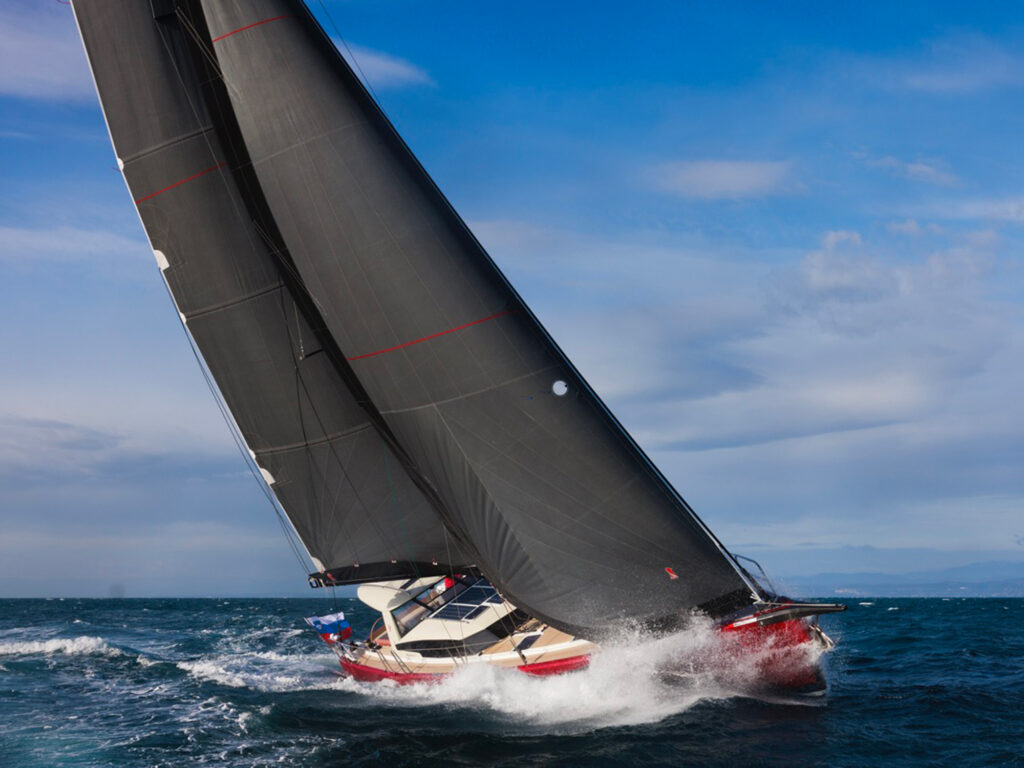
Pegasus 50
The Pegasus 50 is a next-generation bluewater cruiser designed for sailors who prize performance, self-sufficiency, and genuine offshore capability. Built in Slovenia with a carbon-reinforced composite structure, watertight compartments, and a cockpit designed for total weather protection, the Pegasus 50 blends long-distance comfort with true passagemaking DNA. Modern hull lines and a versatile sail plan give this 49-footer a sure-footed feel underway—whether doublehanding across oceans or daysailing with family closer to shore.
Design & Construction
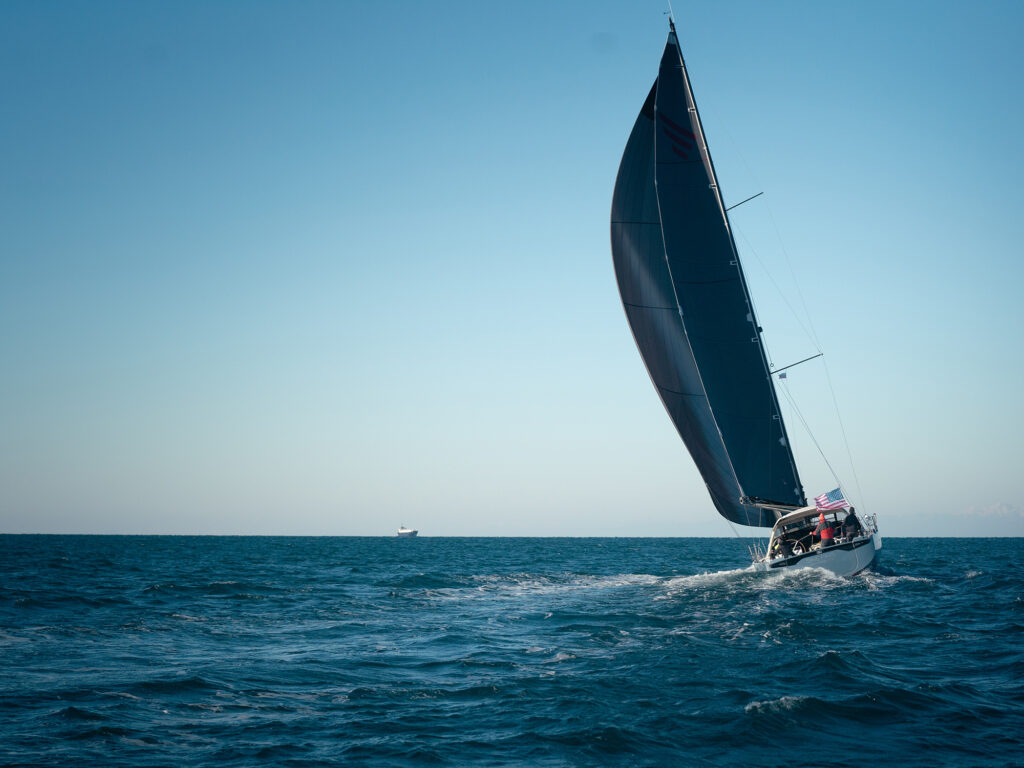
Pegasus Yachts draws on decades of experience in carbon construction—its team has helped bring more than 10,000 yachts to market, including several European Yacht of the Year winners. The Pegasus 50’s hull is infused with a hybrid of glass and carbon fiber around a PVC core for strength and weight savings. Bulkheads and floors are fully bonded to the hull, creating a stiff, monocoque structure. A crash box forward and watertight anchor locker add an extra layer of offshore security.
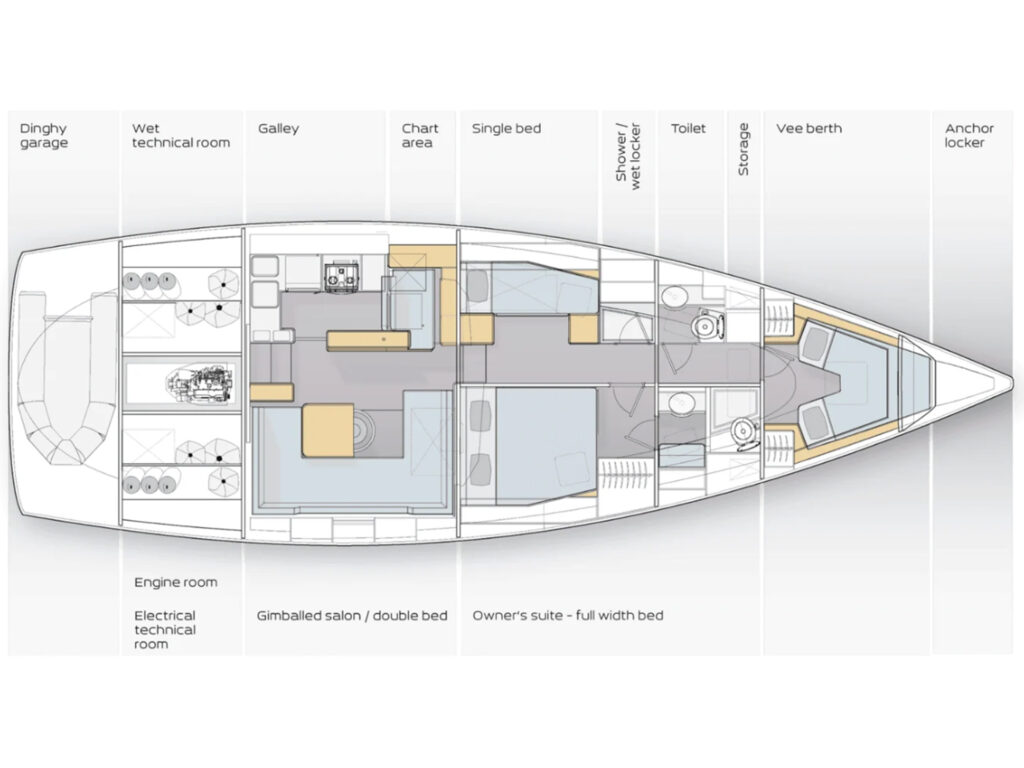
Below the waterline, the tandem keel—with twin fins joined by a lead bulb—improves directional stability and lift while reducing drag. Twin rudders enhance control, especially when reaching and running.
Cockpit & Deck
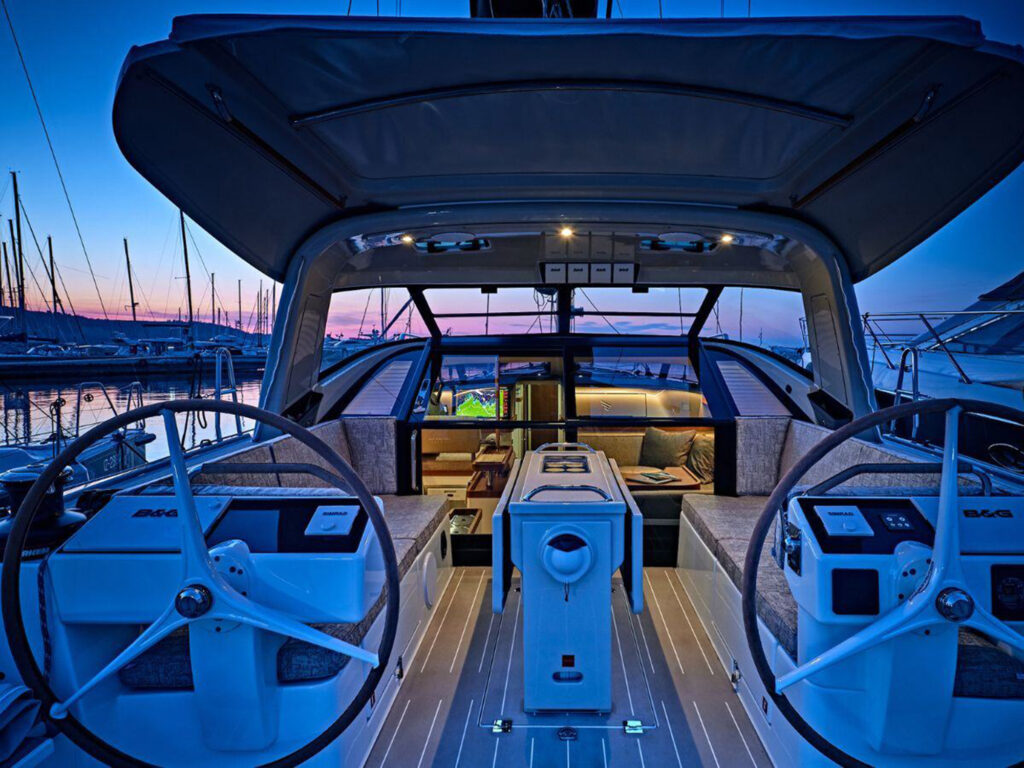
The Pegasus 50’s hallmark is its all-weather-protected cockpit. A fixed glass windshield, hard top, and foldable cabrio roof create a secure working and living space. Sailhandling stays within reach of the twin helms: four electric winches, a mainsheet arch overhead, and all halyards and furling lines led aft. The design emphasizes safe movement, with abundant handholds, higher-than-standard pushpits, and short distances between working zones.
Interior & Layout
Inside, the saloon delivers 360-degree views through large windows and a sliding glass companionway door that links cockpit and interior as one living area. Owners can choose between two- or three-cabin arrangements with one or two heads.
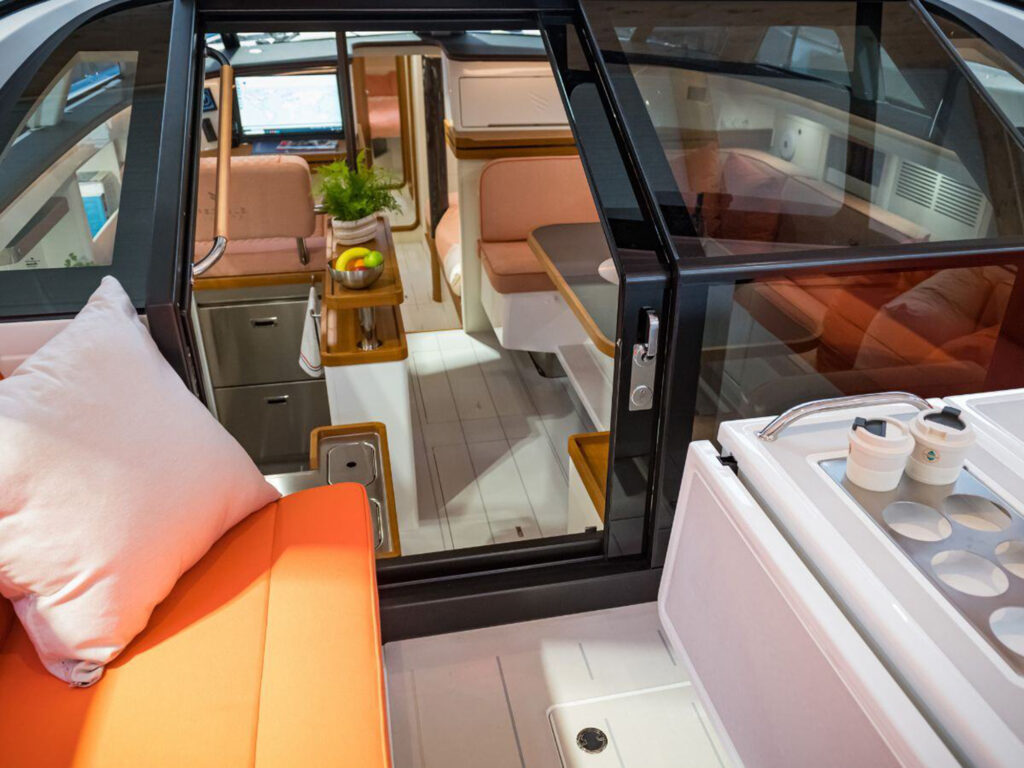
The U-shaped galley includes two drawer-style refrigerators, a cockpit fridge, a deep freezer, and a saltwater rinse option to conserve fresh water. One standout feature is the gimbaled saloon settee and table—electrically adjustable to keep the seating level on either tack, reducing fatigue and seasickness on passage.
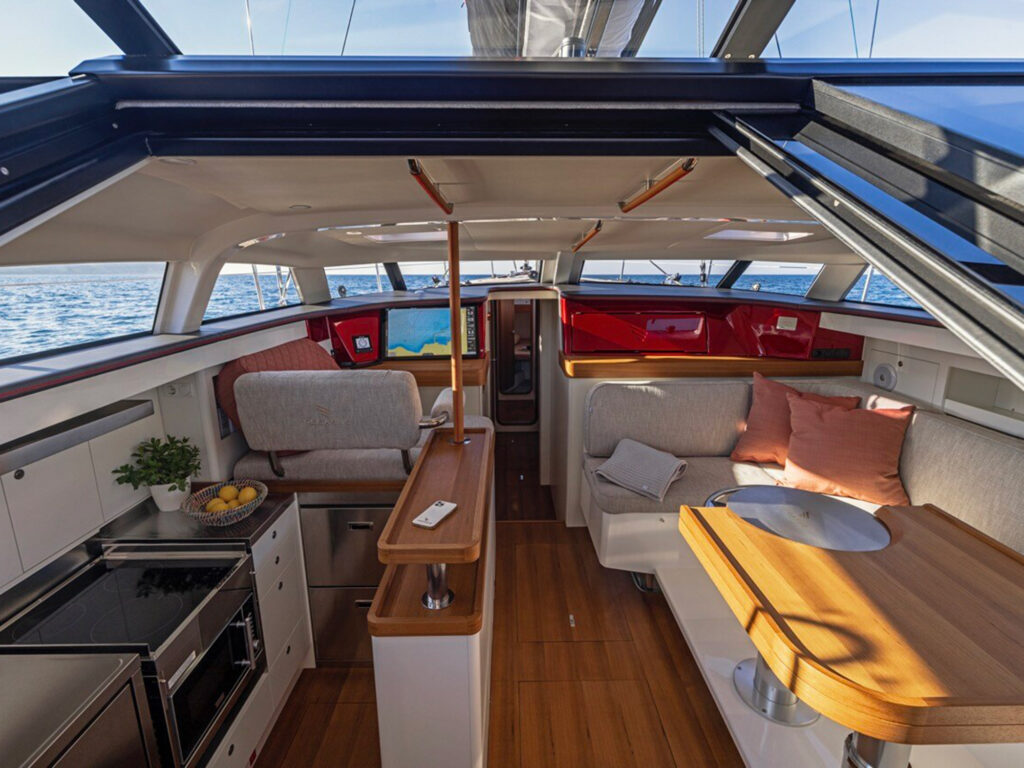
Navigation is handled from an interior station with full forward visibility, allowing the watchkeeper to remain dry and secure during heavy weather.
Performance & Systems
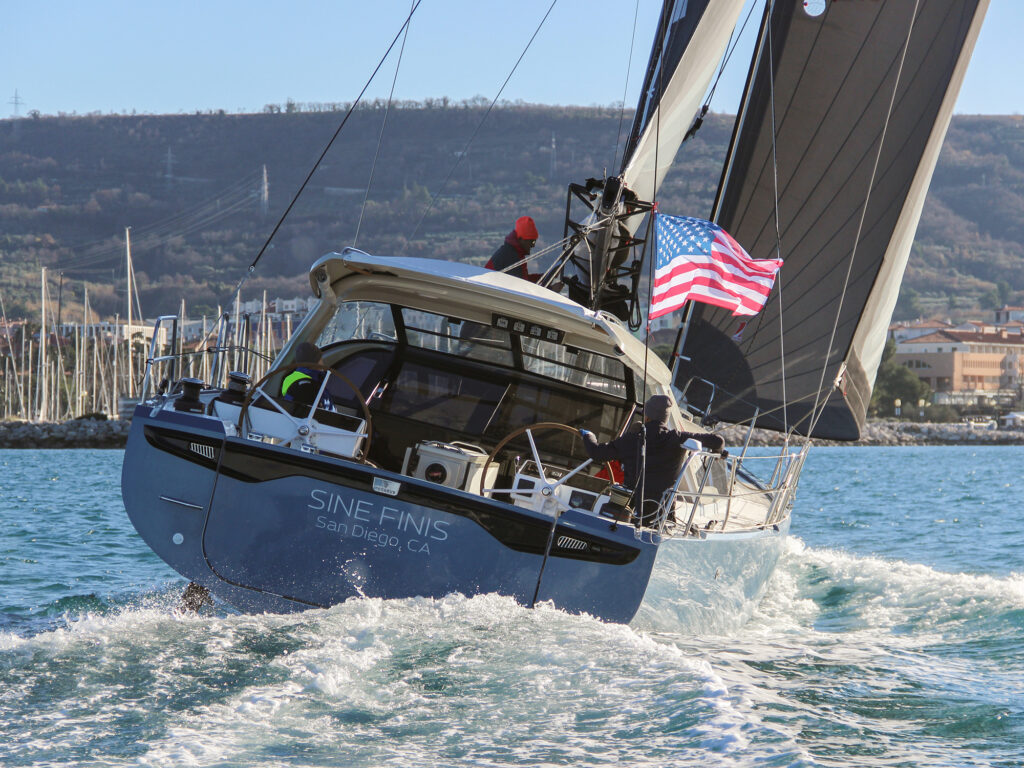
Light displacement, optimized sail plans, and a carbon mast make the Pegasus 50 quick yet manageable. In moderate trades, the boat sails easily at double-digit speeds. A suite of furling headsails—including a self-tacking jib, Code 0, and asymmetrical spinnaker—offers flexible options for varying conditions.
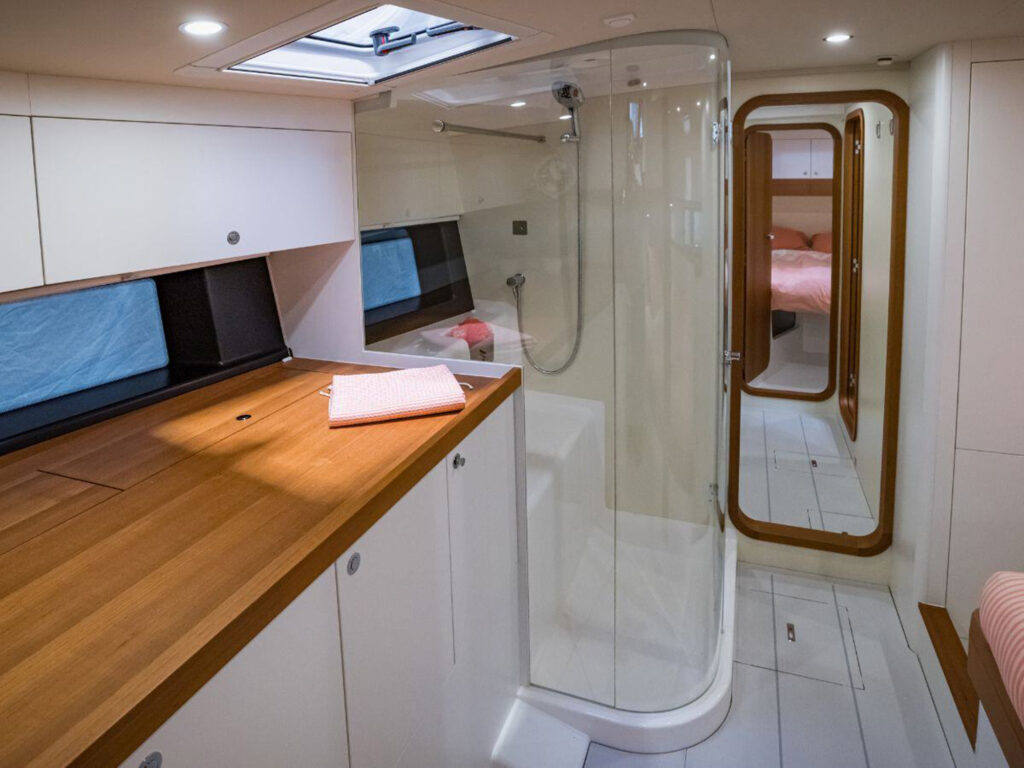
Standard equipment leans heavily toward autonomy: a 15 kW LiFePO4 battery bank, generator, 2 kW solar array, watermaker, induction cooking, air-conditioning, radar, redundant autopilot, and even a washing machine. This high baseline spec means owners can embark on extended voyages without hunting for upgrades.
Why It Matters
The Pegasus 50 represents a growing movement in bluewater design—fast, carbon-infused monohulls that emphasize cockpit protection, interior visibility, and shorthanded sailing. It’s a boat built for sailors who expect to cover real miles in comfort, with systems designed for reliability and self-sufficiency far from shore.
Pegasus 50 Specifications
(as provided by the builder)
| Hull length | 14.94 m / 49 ft |
| Beam | 4.82 m / 15.84 ft |
| Draft (standard) | 2.35 m / 7.7 ft |
| Displacement | 11,700 kg / 25,794 lbs |
| Ballast ratio | 33.2% |
| Propulsion | Volvo D2-75 diesel with Saildrive SD150 |
| Sail area (main) | 68.39 m² / 736 ft² |
| J1 (104%) | 60.37 m² / 650 ft² |
| J2 (self-tacking) | 32.09 m² / 345 ft² |
| A3 (asymmetric spinnaker) | 188 m² / 2,024 ft² |
| Fuel capacity | 480 L / 127 gal |
| Water capacity | 740 L / 195 gal |
| CE Category | A – Ocean |
Key Features
- Carbon-reinforced composite hull and deck
- All-weather cockpit with glass windshield and foldable cabrio roof
- Tandem keel and twin rudders for stability and lift
- Interior nav station with full forward visibility
- Electrically gimbaled saloon table and settee
- Complete bluewater equipment standard, including solar, watermaker, and redundant systems
Comparable Models
- Outbound 52 Voyager
- Hallberg-Rassy 57
- X-Yachts Xc 50
Learn More
Videos
Step aboard the Pegasus 50 with the builder’s own team for a detailed walkthrough. This insider tour highlights the yacht’s protected cockpit, innovative tandem keel, and clever interior layout from stem to stern.
Join Cruising World Editor-in-Chief Andrew Parkinson on board the Pegasus 50 for an exclusive sea trial and firsthand impressions. See how the boat handles under sail and get a journalist’s take on its systems, comfort and offshore capability.
Contact
For pricing, options and availability, visit Pegasus Yachts or see the Pegasus 50 at the upcoming boat shows. The Pegasus 50 is also a nominee for Cruising World’s 2026 Boat of the Year awards.
Built for the Long Haul
When Pegasus co-founder Nico Jonville and his family crossed the Atlantic aboard their Pegasus 50 Sine Finis, they weren’t just delivering a boat — they were proving a concept. Living aboard for weeks at a time, they stress-tested the gimbaled table, the self-sufficient electrical systems, and the enclosed cockpit during real-world ocean passages. The result? A production boat that arrives on the market already ocean-vetted by its own builders.
The All-Weather Cockpit Revolution
Traditional cockpits expose crew to the elements. The Pegasus 50 flips the script with a glass windshield, hard top, and foldable cabrio roof — a concept inspired by North Sea fishing trawlers and high-latitude expedition yachts. For sailors heading to the Pacific Northwest or the high latitudes, this design keeps you warm, dry and still in control at the helm.
Why Tandem Keels?
Most monohulls in this size range use a single deep fin. Pegasus took a page from IMOCA racers and introduced a tandem keel — twin foils linked by a lead bulb. Benefits include shallower draft, less drag, a stiffer ride and the ability to stand upright for haulouts or tidal drying in remote places. It’s a bold move that signals Pegasus is thinking about more than just the marina slip.

